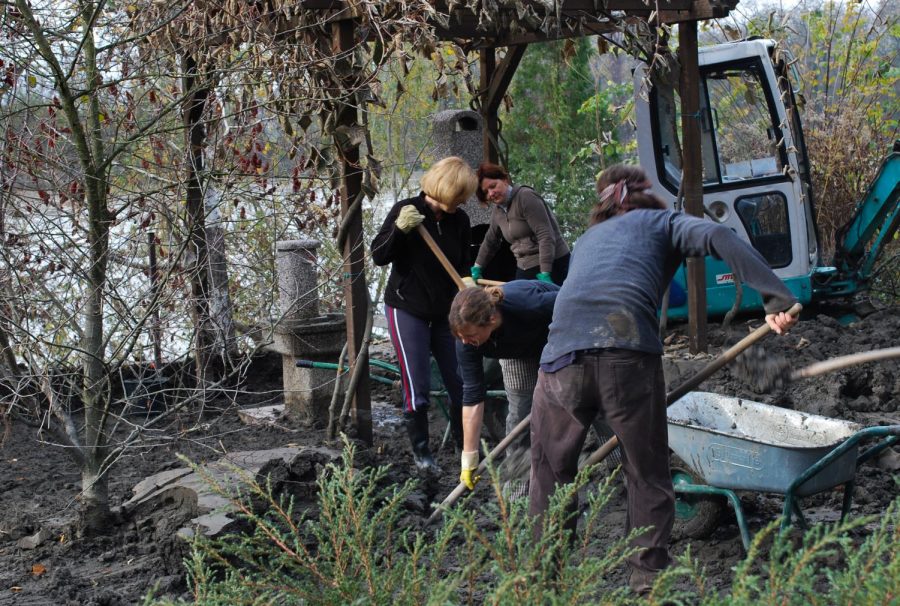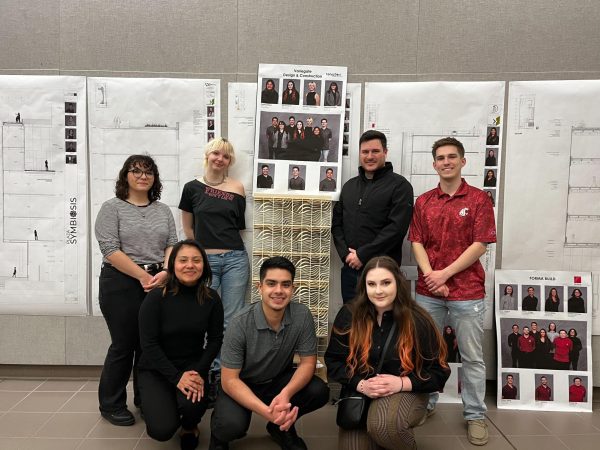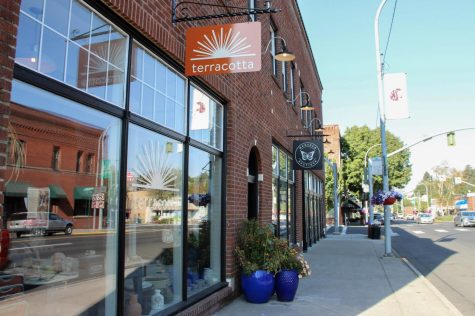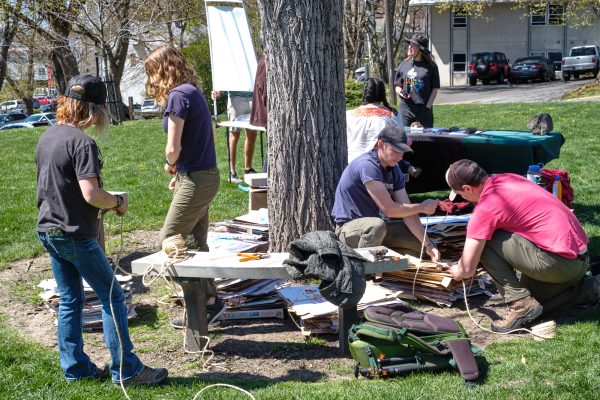Volunteering may be best kept secret to mental health
CCE encourages even most nervous students to volunteer, connect
Some studies have shown that those who volunteer can experience long-term psychological benefits.
April 11, 2018
Most people engage with their community for the sole purpose of offering something back to it, but there is some evidence to suggest this engagement can be a reciprocal process for the volunteer as well.
For Kassi Rolin, the student engagement coordinator at the Center for Civic Engagement, the CCE was the first place she felt she could make an impact, because her values pushed her to help students and her community.
Despite not being a counselor or therapist, she helps students improve their mental health through their volunteer opportunities. But Rolin shies away from the term “volunteer,” because she thinks using different terminology speaks more to the impact they have on the community.
“Using the term ‘volunteer,’ it doesn’t necessarily get at the impact of what you’re doing or why you’re doing it,” Rolin said. “When you use the word, or use terms like ‘community engagement’ or ‘civic engagement,’ it provides more context to what you’re doing, like that you’re engaging the community.”
Through this engagement, she said an individual can provide a service while the agency they volunteer with provides an educational experience for them.
“Being engaged in your community really provides a sense of belonging,” Rolin said. “It provides a way to see how you’re part of a bigger community and society as a whole. It can also provide connectedness among individuals.”
For some, civic involvement is more than just providing a service — it can also improve emotions.
“Literature actually shows that those who engage with their community are more likely to exhibit positive emotions and social skills,” Rolin said, “including openness, agreeableness and extraversion.”
One example of this literature is a journal article, “Does Volunteering Foster Physical Health and Longevity,” published in the Oxford Scholarship Journal, which found a definite link between active volunteering activities and improved psychological health.
People who exhibit these positive moods are more likely to volunteer than those who don’t, which could account for this correlation.
There is even some evidence that links community engagement with improved physical health, though according to the article this link is less clear.
“People with a greater well-being invest more hours in engaging in volunteer work, or with their community,” Rolin said, “which can enhance life-satisfaction, self-esteem, sense of control over one’s life, even your physical life and happiness.”
Remaining active in the community can even lower the severity of depression in some people.
Getting involved can add perspective, Rolin said. Through seeing the problems other people face, volunteers realize how fortunate they are.
Some students are hesitant to get engaged, but Rolin said she has seen positive change in these types of students. They arrive frustrated that they have to finish a community service quota and leave, Rolin said, with a new connection to a senior citizen they played bingo with or gave a manicure.
Rolin said she encourages students who need help finding the right civic engagement opportunity to talk to the CCE peer mentors. They provide guidance that will help new volunteers find something that meets their needs and interests. An added bonus, she said, is how volunteer work looks on a resume for future career aspirations.
Ultimately, civic engagement can have many benefits for both the individual and the community at large.
“It really brought a smile to [the students’] face,” Rolin said, “and made them feel like they were doing something that mattered and that they can feel good about.”
















